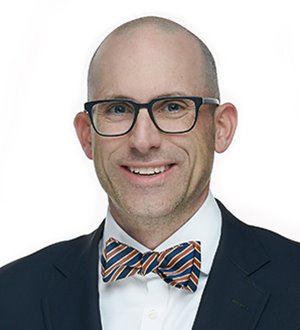On March 23, 2020, the Jefferson County Executive and the Jefferson County Health Department Director issued a joint “Stay at Home” Order to prevent the spread of COVID-19 (the “Order”), with key components allowing residents to be able to perform a variety of tasks and permitting a wide variety of businesses to remain open. The Order includes a very extensive “Frequently Asked Questions” section in order to assist in interpretation.
What activities are allowed?
For individuals, the Order requires that residents stay at home and eliminate all unnecessary travel except as needed for the following activities:
- to perform tasks essential to the health and safety of individuals, household members, and pets, such as obtaining medical supplies or medication, visiting a health care professional, or obtaining supplies necessary to work from home;
- to obtain or deliver necessary services or supplies for themselves, household members, or others necessary to maintain safety and sanitation;
- outdoor walking or exercise provided they maintain social distancing of at least six feet from any other person;
- going to work wherein allowed.
What business may remain open?
All business are allowed to maintain the value of inventory and infrastructure, provide security, process payroll or employee benefits, or facilitate employees working remotely, but are required to cease all other operations. However, the Order does not apply to any business deemed “essential” as defined by the Department of Homeland Security and the Cybersecurity & Infrastructure Security Agency. In addition, the following businesses are exempt from the requirement to cease operations:
- Healthcare facilities and businesses that produce or provide medical care, supplies or medicine, blood banks, and the ongoing construction projects of any healthcare facility, healthcare or supply business and/or medical facility in response to this emergency (this exemption specifically does not include fitness centers/gyms, massage parlors, salons, barbershops, nail salons, or similar establishments);
- Grocery stores, convenience stores, or other stores that engage in retail sales of food, household consumer products, and food production;
- Restaurants-- but only for pickup up, takeout, or delivery;
- Businesses that provide food, shelter, utilities, social services, firearms dealers or retailers, or other necessities;
- Food cultivation, including farming, livestock, and fishing;
- Food and beverage wholesaling, storage, warehousing, and distribution businesses;
- Newspaper, television, radio and other media;
- Gas stations, vehicle supply, vehicle repair, and related facilities;
- Bank and financial institutions;
- Hardware stores and building trade supply stores;
- Businesses providing mailing and shipping services, including post office boxes;
- Laundromats, laundry service providers, cleaning and janitorial services;
- Transportation and motorized equipment and vehicle services including manufacturing, sales, repair, rental, taxis and rideshares;
- Home-based care for seniors, adults, and children;
- Facilities and shelters for adults and children;
- Long-term care facilities, including hospice;
- Hotels and other commercial lodging;
- Professional services (e.g., accountants, lawyers, engineers);
- Construction, trade and Infrastructure (e.g., building, building management and maintenance, plumbing, electrical, HVAC systems, waste, wastewater treatment plants and power generation, Information Technology, and any equipment manufacturer sales and/or service provider associated with the maintenance of those businesses or industrial equipment, etc.). This includes construction required in response to this public health emergency, hospital construction, construction of long-term care facilities, public works construction, and housing construction;
- Childcare facilities to the extent they are providing services for children of health providers, government employees, first responders, and all emergency personnel;
- Manufacture, distribution, and supply chain for exempt businesses;
- Federal, state, and local government;
- Other small solo businesses with 10 or less total employees including management and owner(s) (this applies to fitness centers or gyms, massage parlors salons, barbershops, nail salons or similar establishments);
- Funeral homes, crematoriums, and other memorial and after-life service providers; and
- other exceptions the Director of Public Health or County Executive may specifically designate by further order or ordinance.
The Order allows travel outside of Jefferson County for an individual’s employment in other counties or cities.
If you have any questions regarding this Alert, please contact the authors, Corey Franklin, cfranklin@fordharrison.com, and Karen Milner, kmilner@fordharrison.com, both attorneys in our St. Louis office. Of course, you may always contact the FordHarrison attorney with whom you usually work. Please click here for links to other mandates issued by states and major municipalities.
FordHarrison is closely monitoring the spread of Coronavirus and has implemented continuity plans, including the ability to work remotely in a technologically secure environment when necessary, to ensure continuity of our operations and uninterrupted service to our clients. We are following all CDC guidelines and state and local laws as applicable. We are committed to ensuring the health and welfare of our clients, employees, and communities while continuing to provide our clients with the highest quality service. Please see our dedicated Coronavirus Taskforce page for the latest FH Legal Alerts and webinars on Coronavirus, as well as links to governmental and industry-specific resources for employers to obtain additional information and guidance. For more information or to be connected with a Coronavirus Taskforce attorney, please contact clientservice@fordharrison.com.
















